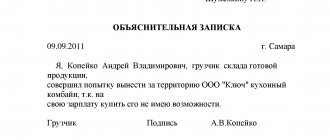The market economy in Russia is quite young compared to Western countries. The tradition of succession between generations of businessmen is just beginning to take shape. However, the problem of inheritance of enterprises has already become relevant in the 21st century.
Old-timers in leadership positions in commercial organizations are being replaced by young people. The founders of the first private companies still remain business owners, but this is not forever. The rejuvenation of the entrepreneurial community is obvious.
This phenomenon is associated with merciless time. Unfortunately, people grow old and die. Many years have passed since the change of the ruling regime and the collapse of the Soviet Union, and gray hairs have covered the heads of the heads of the first Russian private business firms.
Objects and risks when inheriting companies
Some more time will pass and, due to their age, the pioneers of the domestic market economy will no longer be able to conduct business. The agenda will include the question of resigning powers and finding a worthy successor.
Does the current legislation allow for the transfer of a business by inheritance? This and much more will be discussed in this article.
The specificity of business inheritance lies in the particular status of this object. There is no clear regulatory regulation, but there are many rules of unrelated branches of law: “entrepreneurial” and “hereditary”.
By law, an enterprise is recognized as a complex property complex. Article 132 of the Civil Code of the Russian Federation tells us about this. In addition to buildings, structures, equipment, money, it may also include obligations, debts, trademarks and everything else that can be used in the process of business activity.
Enterprise debts
The main risks of business inheritance are associated with obligations. Heirs are not always involved in the affairs of the company during the life of the owner of the company. Being on the sidelines, relatives do not have even the slightest idea about the problems that may arise in the activities of the enterprise.
Having received an inheritance, a person comes to the first meeting of shareholders (participants) or to the director, and the whole heap of accumulated tasks, obstacles, barriers, debts of the company and other obligations falls on him.
It can be reassuring to know that business owners in a limited liability company are liable only to the extent of the nominal value of the share. Accordingly, even if the enterprise is unprofitable, you will not have to pay personal money without your own desire.
Exceptions are cases where insolvency arose already during the reign of the heir, through his fault (occupying the position of director and inept management, approval of a loss-making transaction, etc.).
This may involve bankruptcy of the company, subsidiary liability and other unpleasant procedures.
Nevertheless, it is also not worth staying on the sidelines and completely trusting the business to the existing old management, because the employees were loyal (or not) to the previous owner, and the new one may remain behind the scenes, and the company will be dismantled piece by piece. To prevent this from happening, the heir to the business must get on board and take the steering wheel into his own hands.
Transfer of the obligations of the individual entrepreneur to his heirs
The situation is completely different with the business of an individual entrepreneur. All his obligations are personal, and he is responsible with his own property. The heirs of an individual entrepreneur do not accept a share in the business, but specific property used in business activities. Here you will have to answer with what you have.
Formally, the obligation passes to the heirs within the limits of the value of the accepted property. It would seem that you can be calm - you received the property and you respond with the same. But it's not always that simple.
The insidiousness of the situation lies in the fact that according to accounting, the value of the property may be overstated. Accordingly, collection will be made on it based on its book value.
But in reality, the company’s things may be worthless. Here, an accepted inheritance can significantly hit your pocket. Although another situation cannot be ruled out, when the book value is underestimated and debts will be cut off. This is beneficial to the debtor and annoying to the creditor.
What to pay attention to
At the same time, you need to keep in mind that this procedure cannot be applied to real estate and transport. When there is an expensive property and the book value is low, or it has completely depreciated, the lender may require an independent examination to establish the limits of the heir's liability.
It is also necessary to understand that not all legal entities have the possibility of applying inheritance law. Only private businesses are inherited; state offices and unitary enterprises are not related to the topic under consideration.
Responsibility of heirs for the debts of the testator
One of the principles of inheritance states that the heir can receive his share of the inheritance, no matter what it is, only in full (clause 2 of Article 1152 of the Civil Code of the Russian Federation), that is, including all debts and obligations. Thus, if the heir physically or legally accepted the inheritance (Article 1153 of the Civil Code of the Russian Federation), which includes an enterprise with debts, he is responsible for paying the debt as the owner (Article 1175 of the Civil Code of the Russian Federation).
The joint and several debt is limited to the share of each successor that he received. That is, the maximum that the heir will be required to pay in case of debt on the enterprise is determined by the value of his share in the enterprise and all other property.
Creditors are given the right to make claims on the debts of the enterprise within the limitation period (clause 3 of Article 1175 of the Civil Code of the Russian Federation). In general, they are three years, in some - up to 10 years (Article 196 of the Civil Code of the Russian Federation). The statute of limitations begins to count from the moment when the creditor learns of the infringement of his interests (Article 200 of the Civil Code of the Russian Federation) and is not extended when the person in the obligation changes, that is, the owner of the enterprise or share in it (Article 201 of the Civil Code of the Russian Federation).
When inheriting by transmission , the final heir is liable for the debts of the first owner only, but not of the person after whose death he received the property (Clause 2 of Article 1175 of the Civil Code of the Russian Federation). Transmission occurs if the main heir died after the opening of the inheritance and did not have time to accept it, and his own heir by will or by law takes over instead of him.
Example Individual entrepreneur R. took out a loan to develop his business, but failed. However, the enterprise soon collapsed, R. owed a large amount of money - about 1.5 million rubles. For several years, the man paid off the debt from his pension, which was his only income; the debt increased very slowly. 4 years after the bankruptcy of the enterprise, R. died. He inherited a debt almost in the original amount and a one-room apartment worth about 800 thousand rubles, which he owned together with his daughter. It so happened that R.’s share was 1/3 of the housing, and the daughter’s was 2/3. The latter needed to accept the inheritance, because the apartment was her only place of residence. However, the girl was in a panic because of the amount of debt, which exceeded the cost of the apartment. The lawyer advised her to accept the inheritance, because, according to Art. 1175 of the Civil Code of the Russian Federation, inheritance debts cannot exceed the value of the entire inheritance. Daughter R. wrote a notary application for acceptance of an inheritance in the form of 1/3 of an apartment worth about 266 thousand rubles. It was this amount that she owed the bank for the debts of her father’s bankrupt enterprise. The girl believed that she could pay the amount in exchange for becoming the owner of the apartment. According to the law, the bank cannot demand from her a larger payment than the agreed upon 266 thousand rubles.
Features: LLC inheritance, IP inheritance, one or more owners
The peculiarities of inheritance of an enterprise lie in the complexity of this object and its dual status. Oddly enough, the enterprise as a whole is recognized as real estate, although the real estate itself may not be part of it.
For example, a small retail business on rented space. The structure of such a business will only include goods in circulation, cash in the cash register and in the current account, commercial equipment, obligations and rights. At the same time, even such an enterprise will be recognized as a property complex.
On the other hand, the term “enterprise” refers to a business entity. More often this is how a company is designated, but if the business of an individual entrepreneur is large, then this definition can also be applied to it.
Different interpretations of one term lead to difficulties in understanding its essence and legal status.
LLC inheritance
A commercial organization is a legal entity and its owner is the owner of a share in the authorized capital (for LLC) or shares (for JSC).
That is, the owner of the buildings, equipment, and money of the company is formally the legal entity itself, and not its founder. The owner of the business is not the direct owner of the property of the enterprise, but owns it all through his company.
This raises a very difficult question - what to inherit: a share in the authorized capital (shares) or directly all the property of the company (property complex).
Unfortunately, there is no direct answer in the law, since business inheritance is not designated as a separate type of legal relationship. In addition, the property complex (enterprise) will not necessarily be identical to the entire company.
Thus, one legal entity can concentrate several property complexes, for example, a network of factories in different regions of Russia.
Each production complex will be a branch of the company, have its own equipment, employees of a separate division, and so on. It is not possible to inherit such a business as a single property complex.
In this regard, there is an expert opinion that the transfer of a company by inheritance is still legally correct through the inheritance of a share in the authorized capital of the company / shares.
When a business has several founders
Inheriting a business through obtaining rights to a share in the authorized capital is especially important when the company has several participants in addition to the testator. In this situation, it is impossible to transfer the enterprise as an entire property complex due to the ownership of only part of the business by the testator.
In addition, inheriting an LLC has one important feature: the testator's partners may not want to transfer the share to the heir. In this case, the successor will only be paid compensation.
Formally, its size must correspond to the market value based on the results of assessing the value of the business, or the value of the share based on the book value of the property. In fact, all the numbers are in the hands of the partners, and they can bring the price to any value by manipulating accounting data.
IP inheritance
Unlike an LLC, an individual entrepreneur has no shares, no authorized capital, and therefore it is impossible to inherit the “IP” itself. This abbreviation means “an individual registered as an individual entrepreneur.” This status is inextricably linked with personality and is not inherited.
However, no one has canceled the inheritance of an individual’s property in this situation. Accordingly, when a business is transferred to the heirs of an individual entrepreneur, the successors receive exactly the property of the businessman.
In this case, the above-mentioned linking of the concept “enterprise” to the category “property complex” will be relevant.
In its composition, in addition to things used for business and money, the heirs can receive property and non-property rights (intellectual property, exclusive rights, trademarks, software licenses, non-exclusive rights to the website, commercial designation, slogan and much more).
What is an enterprise
An enterprise is a property complex used to carry out business activities. Such objects belong to the category of real estate.
They can be the subject of transactions - purchase and sale, collateral. Enterprises are inherited as a single whole. The procedure for accepting an inheritance is determined by law.
The company includes:
- A plot of land.
- Buildings, structures.
- Industrial equipment.
- Raw materials, finished products.
- Profit of a business entity.
- Accounts receivable.
- The right to claim against third parties.
- Company name, trademark.
- Other exclusive rights.
What types of business entities are there? On the territory of Russia, the following organizational and legal forms are most often used: LLC, JSC, and individual entrepreneur.
Inheritance of a company by law and will, who can inherit the business and when
Legislatively established methods of inheritance are also relevant for the situation with the transfer of a business. No matter how many nuances there are, inheritance law has not yet invented anything else.
So, like any property, an enterprise can be inherited either by law or by will. And it doesn’t matter whether it’s a share in the authorized capital, shares, a property complex, or the company’s belongings separately.
Any person (if there is a will) or relatives in order of priority can become the receiver of the case.
In law
It is most logical to transfer the business to the most mature and educated relative. But a choice is possible in the case of a will, and if there is no will, then His Majesty the “Law” comes into play.
He has no priorities in terms of expediency, abilities and determines heirs solely by degree of relationship.
Briefly this system looks like this:
- Children, husband, wife, mom, dad.
- Brothers, sisters, grandfather, grandmother, nephews.
- Uncles, aunts, cousins.
- Great-grandfathers, great-grandmothers.
- Cousins and granddaughters, great-uncles and grandmothers.
- Cousins, great-grandchildren, cousins, nephews and nieces, cousins, uncles and aunts.
- Stepsons, stepdaughters, stepfather, stepmother.
From this entire list, only capable and adult relatives can be real successors to the business. Only such citizens are able to understand the meaning of inheriting a company, because a number of rights and obligations of an LLC participant can only be of adult age.
By will
The most correct thing from the point of view of ensuring the life of the company after the death of its owner is to draw up a will. At the same time, not necessarily for a relative.
If a business owner is interested in the prosperity of his business and understands that no one among his relatives can provide this, but will only “squander” what he has earned over the years, he can identify any worthy person as a successor.
The concept of “worthiness” is highly subjective, but a large enterprise may employ thousands of people. Their fate cannot be entrusted to a person who is incapable of running a business.
The will must be drawn up in person. When registering it, the owner of the enterprise must be aware of the meaning of his actions and the consequences of their commission.
We must not forget about guaranteed shares in inherited property for disabled heirs of the first priority.
Which objects can be inherited and which cannot?
In the section of inheritance law of the Civil Code, in addition to the inheritance of real estate, land and enterprises, the following types of succession are allowed:
- according to Article 1177 of the Civil Code of the Russian Federation “Inheritance of rights related to participation in a consumer cooperative”;
- according to Article 1179 of the Civil Code of the Russian Federation “Inheritance of property of a member of a peasant (farm) enterprise.”
You cannot transfer subjects of civil rights, that is, state unitary enterprises, as well as municipal, federal and state enterprises, to your successors. If one of the listed legal entities carries out its activities on the basis of a property complex, then it also cannot be passed on by inheritance.
Important! Only an individual (individual entrepreneur), acting without forming a legal entity, can leave his organization to his descendants. His personal property will be inseparable from the property base of the enterprise (according to Article 24 of the Civil Code of the Russian Federation “Property Responsibility of a Citizen”).
General order of inheritance: documents
The list of documents on the part of the heir is clear and standard, as for all other types of inheritance:
- identification document;
- confirmation of relationship;
- death certificate.
As for the papers for the enterprise itself, everything is much more complicated. After all, this is not just a thing, but a working mechanism in which people are involved.
According to the list, the number of inventory items, fixed assets, and obligations can amount to thousands, and all of them require papers. The question may arise: “why is this necessary if a share in the company is inherited?”
Reasonable, but to determine the valuation of a share, you need to understand the book value of the company's assets and liabilities, and this is impossible without documents for each position.
It’s good if you have contact with the management of the enterprise, especially with the management of the accounting department. In this case, you can easily collect the necessary papers for both the company (certificates, Charter) and the company’s property.
The situation is different if the accounting is lost or the heir is not given access to the documents by employees. In this case, you will have to use requests and possibly sue.
With this outcome, you will have to draw up a detailed action plan. It's like storming an impregnable fortress.
The legal dispute will have the subject of “request for documents”
During this process you must apply:
- for the company - OGRN and TIN certificates, Charter, protocol for the director;
- for individual entrepreneurs – a certificate of registration as an individual entrepreneur, a notification for registering an individual entrepreneur with the tax authority, and a TIN certificate.
The more information about the organization can be collected, the more balanced the decision will be to take or not take a share. An accurate analysis of documentation will help you avoid surprises and pitfalls.
Business as an inheritance
Obstacles to inheritance lie not in the characteristics of such a hereditary object, but in the internal regulations of the organization. Shared participation may serve as a reason for the final non-receipt of the inherited object. This is the specificity of the functioning of private companies.
How are LLCs, individual entrepreneurs, and companies inherited?
In procedural terms, no significant differences in inheritance are provided (this implies a comparison of such forms of organization as LLC/IP/company, as well as their comparison with alternative objects of inheritance). In any case, the application procedure for applicants applies. Compliance with bureaucratic procedures is extremely important for government agencies and officials.
Difficulties in inheriting a company
In addition to the mandatory implementation of all actions (writing an application, carrying out an assessment, paying a fee), applicants are also required to comply with the deadline established for this - six months from the date of the death of the testator. An important circumstance is the collection of the necessary documents: personal, property rights, proof of the death of the testator and family ties with him.
Otherwise, certain problems may arise when reading the will due to poorly composed text. If the deceased owner had several companies registered in his name, then he should clearly indicate their names in the content. Streamlined wording will provoke the recognition of the document as invalid.
Acceptance deadlines
The period for entering into an inheritance for an enterprise is the same as in the case of other property – 6 months. During this period, you must contact a notary with all documents. After going through a series of formal procedures, an inheritance certificate will be issued.
Registration of rights to LLC
After receiving the certificate of inheritance, you can go and register your right to the share with the registering tax authority (amending the Unified State Register of Legal Entities). After 5 working days after submitting the documents, the tax office will issue a registration sheet and changes will be made to the register of legal entities.
A limited liability company is required to maintain a register of participants. It is also necessary to make adjustments in this document after entering information about the new member of the Company into the Unified State Register of Legal Entities.
Registration of rights to an individual entrepreneur's business
If an enterprise is inherited as a property complex, then it is necessary to register the ownership of it as real estate by submitting documents to Rosreestr through the Office itself or the MFC.
When receiving separate property by inheritance, registration must be carried out in relation to the rights to vehicles (in the State Traffic Safety Inspectorate) and real estate (in Rosreestr).
In relation to the business itself, the process of its succession consists of re-registration of contracts with the testator's counterparties. Considering that rights and obligations are inherited, this should not cause any confrontation between the parties to contracts.
Measures to protect inheritance
Before the heirs take possession of their rights, the property of the testator must, at a minimum , be preserved in its original form . At the most, multiply. To preserve the property, at the request of any of the heirs, the guardianship authority or a representative of local government, a notary or executor of the will takes protective measures (Article 1171 of the Civil Code of the Russian Federation).
The period for implementation of protective measures is no more than six (sometimes nine) months from the date of opening of the inheritance, or until the execution of the testamentary document.
Measures to protect the inheritance, including inventory and assessment, are specified in Art. 64-69 Legislation on notaries. The notary officer is empowered to send requests to banks and legal organizations in order to identify the composition of the property being inherited.
The assessment of the property complex of the enterprise and the rest of the property is carried out with or without the consent of the heirs. In the latter case, it is carried out at the expense of the person who requested the appraisal; in the former, the appraiser’s work is paid from the inheritance.
An inventory of the property included in the enterprise can be made by the notary himself in the presence of a pair of witnesses (clause 1 of Article 1172 of the Civil Code of the Russian Federation). Special requirements are imposed on the persons testifying: they cannot be interested heirs and their relatives of the first circle of inheritance; incompetent, illiterate citizens or those who do not speak Russian.
How to refuse inheritance of a company
It is not necessary to refuse the inheritance. To avoid receiving it, it is enough to simply not accept it and not start using the testator’s property.
There are some restrictions regarding opting out:
- there should be no conditions for refusal, it is done completely and irrevocably;
- it cannot be refused if, according to the will, everything is distributed to specific persons;
- Refusal from the obligatory share is not acceptable.
An active action is also possible - refusal in favor of another person or without indicating such. The deadline for direct refusal is during the period of acceptance of the inheritance.
At this time, you need to meet and submit the appropriate application to the notary at the place where the inheritance was opened. If the deadline is missed, you can refuse in court by filing a corresponding application with the court.
Reimbursement of expenses for protection and management of inheritance
The trustee and persons carrying out measures to protect the inheritance (executor of the will, notary officer) have the right to reimbursement of costs associated with their activities in relation to this specific property (Article 1174 of the Civil Code of the Russian Federation).
Expenses are reimbursed from the monetary component of the property in proportion to the shares of each heir .
If the trustee received any benefit from his activities related to the inheritance, its monetary value is deducted from the remuneration.
The costs of protection and administration are reimbursed after the funeral of the testator is paid , but before the costs of executing the will, settlements with creditors and recipients of the will are paid.
Costs are compensated in an amount no greater than the amount of the inheritance itself.
conclusions
To summarize, it should be noted that inheritance is different from inheritance. Many little things can influence whether it is advisable to accept it or not: the characteristics of the object of inheritance, the need for investment in the accepted business, the number of employees coming under the new owner, and much more.
If “property” can be used directly, then “business” is still work. It is possible that it is not the heir who will use the enterprise, but the enterprise will be used by the heir.
By accepting the rights to an enterprise, a person acquires not just things, he acquires, perhaps, his life’s work, or at least a very labor-intensive occupation.
Determination of shares of heirs
Ideally, the legislation of the Russian Federation provides for an equal distribution of shares of property between the heirs (clause 1 of Article 1122, clause 2 of Article 1141 of the Civil Code of the Russian Federation), unless otherwise specified in the will or specified in a voluntary agreement between the heirs (Article 1165 of the Civil Code of the Russian Federation ). In fact, this rarely happens. Shared inheritance of an enterprise has some features.
If one of the heirs exercises the preemptive right to the enterprise, the rest receive their shares in equal parts from the remaining property. If the shares are unequal to what the primary heir received, the latter is obliged to pay compensation to the others (Article 1170 of the Civil Code of the Russian Federation).
Most often, it turns out that none of the heirs has an advantage in obtaining the enterprise. Then there is only one option. The enterprise is not subject to division and comes into the common shared ownership of all heirs in accordance with their conditional inherited shares (Article 1178 of the Civil Code of the Russian Federation).
Parts other than equal ones are claimed by obligatory heirs when dividing property under a will (Article 1149 of the Civil Code of the Russian Federation), as well as heirs by right of representation (Article 1146 of the Civil Code of the Russian Federation).
Another ratio of shares in the enterprise and the rest of the inherited property is possible upon signing an agreement (Article 1165 of the Civil Code of the Russian Federation). This option has full legal effect. This section is taken into account when issuing a certificate of inheritance.
Inheritance of the right to participate in organizations of various forms - societies, partnerships, cooperatives
Before considering the features of enterprise inheritance, you need to understand how their different forms differ. Business companies and partnerships are commercial organizations in which the authorized (or share) capital is divided into shares or contributions of persons acting as participants or founders. The property that was created through their contributions, as well as subsequently purchased or produced by the company, belongs to the participants as property rights.
To understand how the inheritance of a share in an enterprise occurs, you need to understand the peculiarities of the structure of different types of societies. According to the law, these can be:
- Production cooperatives (sometimes called artels), when citizens unite to carry out relevant activities. Participants make share contributions, then work independently or participate in activities in another way. Such cooperatives are often created in agriculture.
- Consumer cooperatives, whose participants also make share contributions. But the purpose of organizing such a company is to satisfy material needs.
- Housing cooperatives - they are founded for the construction of housing.
- Business partnerships (full or limited partnerships - the difference between them will be discussed below).
- Joint stock companies – participants own a certain number of shares.
- Limited liability companies - the founders make contributions to the authorized capital.
According to the law, successors receive the right to participate in the listed associations, and the specific form of implementation of inheritance legal relations directly depends on how the organization is formalized.
General provisions on inheritance
Regardless of what exactly is the object of inheritance legal relations, all these issues are regulated by the Civil Code of the Russian Federation. It specifies two grounds for the emergence of such legal relations - by will and by law. In the first case, the testator himself decides who will become his successor. Not only spouses, children or relatives, but also friends, acquaintances, as well as various organizations (for example, charitable foundations) and the state can receive inheritance rights.
It happens that there is no will because the testator did not have time to draw it up. Then all this is inherited by law. In a normal situation, first-degree relatives—spouses, parents, children—accept property first. If they are not there, then they are second-degree relatives. The procedure for inheriting a company is slightly different. It will be considered separately.
But with regard to the receipt and transfer of rights to the company’s property complex, some rules adopted for familiar objects – real estate and cash – also apply. For example, there are compulsory heirs - citizens are entitled to a portion of the property, regardless of the circumstances of the case. This:
- Parents or spouse of the testator if they have lost their ability to work.
- Minor children of the testator (or those who have lost their ability to work).
- Citizens who are not relatives of the testator, but were dependent on him for at least a year before his death, that is, funds received from the testator were regarded as the only or main source of livelihood.
- Persons who are not relatives of the testator, but for at least a year were his dependents and lived with him.
If there are no documents confirming the testator's ownership of the share, the heir will not register ownership of the heirs
According to the provisions of the Civil Code, these categories of persons must receive ½ of the share that they could count on in the absence of a will (in case of inheritance by law).
There is also a pre-emptive right of inheritance of the enterprise. It is received by those people who were registered as individual entrepreneurs at the time of opening the inheritance. If beneficiaries include government-registered commercial organizations, they receive benefits. There are also situations when none of the legal successors has an advantage. Then, unless any other nuances are specified in the will, the company passes into the common shared ownership of the recognized successors.
Prepare a trust agreement
This agreement is especially important if a 100% share of the business is inherited. Trust management helps preserve inherited property during the transfer of inheritance and helps the business function smoothly. Since the inheritance is accepted within six months, and the rights to shares, interests and shares are transferred at the time of making an entry in the Unified State Register of Legal Entities or the register of share holders, the owners cannot manage the business.
It turns out that there is no legal owner until the inheritance is registered. Trust management, the founder of which is a notary (Article 1173 of the Civil Code of the Russian Federation), will help solve this problem.
The notary enters into an agreement with the trustee and obtains the consent of all heirs known at that time, who are indicated as beneficiaries. Once new heirs are discovered, they must also be indicated in the contract.
Polina Garanina, director of the communications agency "Pioneer"
In our family, there was an attempt to pass on a network of dentists by inheritance from father to middle daughter.
It failed because both parties had different views on how a sister should enter the family business. My sister was sent to study to become a doctor. She didn’t resist, but realized that she wanted to be a manager. Dad saw her as an ordinary therapist, then a doctor’s assistant and then a chief physician (in medicine, management follows parallel paths - there are two managers, a doctor and a director). They haven't spoken for three years now. I hope that over time the relationship will improve. I am glad that, as the eldest, I chose a path that, although it helps the family business, does not depend on it. Of my acquaintances in medicine, from five families, only one business has so far been transferred by inheritance (where the management of a large asthma treatment clinic was transferred to the daughter-in-law, but the children categorically do not want to take it away from their mother) and one is in the process of being transferred from father to son, like would be successful. There, the son also chose the path of a doctor and is ready to specialize in it, gradually taking control through the line of the chief physician.









